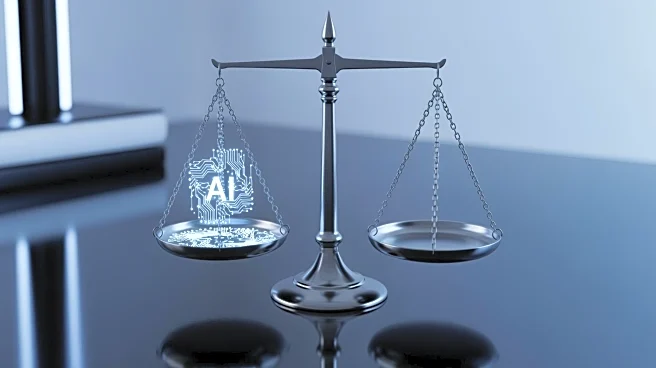What's Happening?
Dario Amodei, CEO of Anthropic, has expressed discomfort with the current state of AI governance, advocating for more stringent regulation of the technology. In a recent interview, Amodei emphasized the need
for broader oversight beyond the control of a few tech leaders. Anthropic has been transparent about AI's limitations and dangers, recently thwarting a large-scale AI cyberattack. Despite the absence of federal regulations, states have introduced AI-related legislation, but industry experts urge for more urgent cybersecurity measures. Amodei warns of AI's potential risks, including bias, misinformation, and existential threats.
Why It's Important?
Amodei's call for regulation highlights the growing concern over AI's impact on society and the need for responsible governance. As AI technology advances rapidly, the lack of comprehensive regulations poses risks to public safety and ethical standards. The tech industry faces pressure to balance innovation with accountability, ensuring AI developments do not compromise societal values. Stakeholders, including policymakers and tech companies, must collaborate to establish frameworks that safeguard against AI's potential misuse and ensure equitable benefits.
What's Next?
The push for AI regulation may lead to increased legislative efforts at both state and federal levels. Policymakers could introduce measures to address AI's ethical and safety concerns, potentially influencing industry practices. Tech companies might need to adapt to new regulatory environments, prioritizing transparency and security in AI development. The discourse around AI governance could also prompt international cooperation, as countries seek to harmonize standards and address global challenges posed by AI technology.
Beyond the Headlines
Amodei's stance reflects broader ethical considerations in AI development, including the balance between innovation and societal impact. The debate over AI regulation raises questions about corporate responsibility and the role of tech leaders in shaping the future. As AI becomes more autonomous, cultural shifts may occur, affecting workforce dynamics and public perception of technology. The conversation around AI governance also touches on long-term implications for democracy and human agency, as technology increasingly influences decision-making processes.









